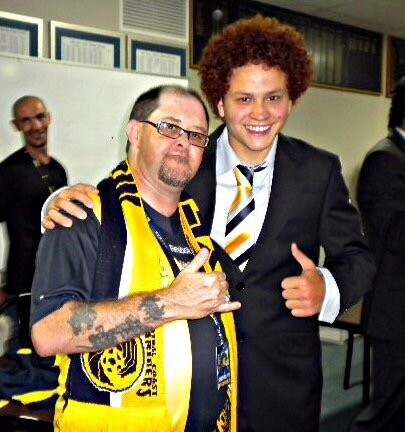-
Join ccmfans.net
ccmfans.net is the Central Coast Mariners fan community, and was formed in 2004, so basically the beginning of time for the Mariners. Things have changed a lot over the years, but one thing has remained constant and that is our love of the Mariners. People come and go, some like to post a lot and others just like to read. It's up to you how you participate in the community!
If you want to get rid of this message, simply click on Join Now or head over to https://www.ccmfans.net/community/register/ to join the community! It only takes a few minutes, and joining will let you post your thoughts and opinions on all things Mariners, Football, and whatever else pops into your mind. If posting is not your thing, you can interact in other ways, including voting on polls, and unlock options only available to community members.
ccmfans.net is not only for Mariners fans either. Most of us are bonded by our support for the Mariners, but if you are a fan of another club (except the Scum, come on, we need some standards), feel free to join and get into some banter.
You should upgrade or use an alternative browser.
CCM Boys conquering the world
- Thread starter Atomic
- Start date
sydmariner
Well-Known Member
With a mix of Hyundai A-League steel, exciting local talent and a dash of overseas flair, Edgeworth Eagles are a team to watch out for in the FFA Cup 2019, despite some key absences for their trip to Darwin Olympic.
Edgeworth have reigned supreme in the Northern NSW NPL force in recent times, clinching the last four Premierships (2015, 2016, 2017, 2018) and reaching the last four Grand Finals, taking out two of those Championship titles (2015, 2016).
The Damian Zane-coached side - who boast former Hyundai A-League legend Daniel McBreen and Josh Rose in their ranks - are once again challenging for top spot in 2019 and could become the first team to progress to a fifth straight Grand Final since Weston Workers in the 1970s.
The loss of captain Josh Evans, considered by many as one of the competition's best defenders, will sting for the Eagles. He's heading to the US for an eight-week stint with the RAAF, while centre back partner Mitch Dobson is also bound for the States to play college football.
Meanwhile, an injury to goalkeeper Nate Cavaliere and loss of midfielder Jose Atayde, who is trialling in Spain, are also unfortunate absences for the club.
However, with 2019 being the team's fourth appearance in the competition, and with prestige packed in their ranks, there's every chance Edgeworth could better 2016's Round of 16 finish, where they were brushed aside 5-1 by Western Sydney Wanderers.

Profile
Competition: Northern NSW NPL
Home ground: Jack McLaughlan Oval
Honours (NPL): Northern NSW NPL Premiers (2015, 2016, 2017, 2018)
Northern NSW NPL Champions (2015, 2016)
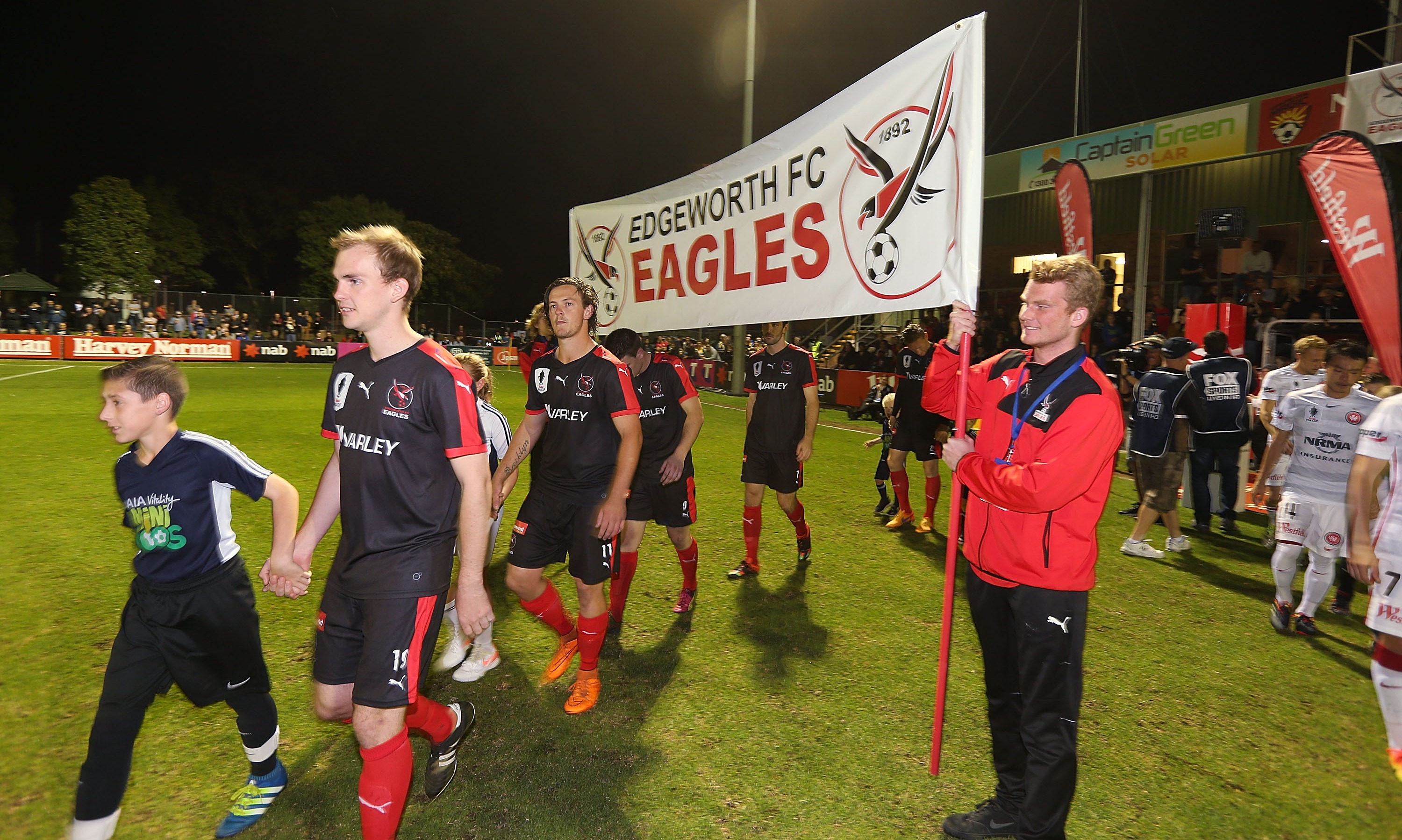
Edgeworth made the FFA Cup Round of 16 in 2016, but were defeated 5-1 by Western Sydney Wanderers
History
The first recorded football match involving Edgeworth - who were then known as Young Wallsend - took place in May 1892, in a 3-0 defeat against Minmi Rangers.
Although the club have been the benchmark in the Northern NSW NPL division for some time, the Eagles spent most of the 20th century in the lower leagues, winning promotion to the first division in 1973.
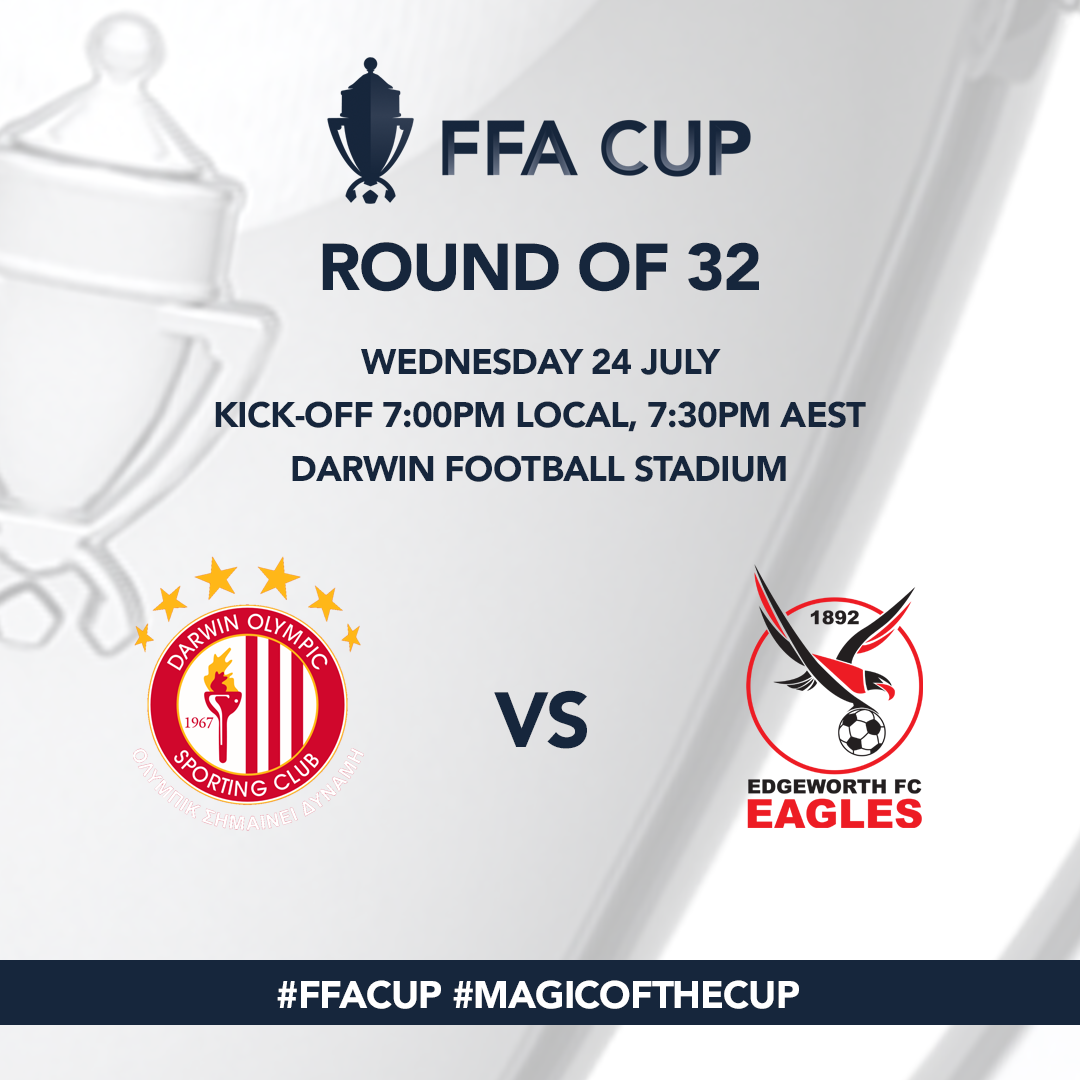
Key Players
Former Hyundai A-League Golden Boot winner Daniel McBreen continues to fire for the Eagles at the ripe old age of 42.
The ex-Central Coast Mariners man continues to defy the odds with his leadership presence for Edgeworth - he's contributed three goals in eight matches for the Eagles in 2019 - and his experience on the big stage will prove vital in getting past the challenge of Darwin.
Josh Rose, like his ex-Mariners teammate, is still offering plenty of value going forward for the Eagles and boasts a left foot capable of catching any FFA Cup defence off guard.
Round of 32 Match Details
Darwin Olympic v Edgeworth Eagles
Date: Wednesday, 24 July 2019
Venue: Darwin Football Stadium
Kick-off: 7.30pm AEST
Click here for ticket details
FFA CUP ROUND OF 32: DARWIN OLYMPIC V EDGEWORTH EAGLES
Tip the winner

Darwin Olympic SC
41 %
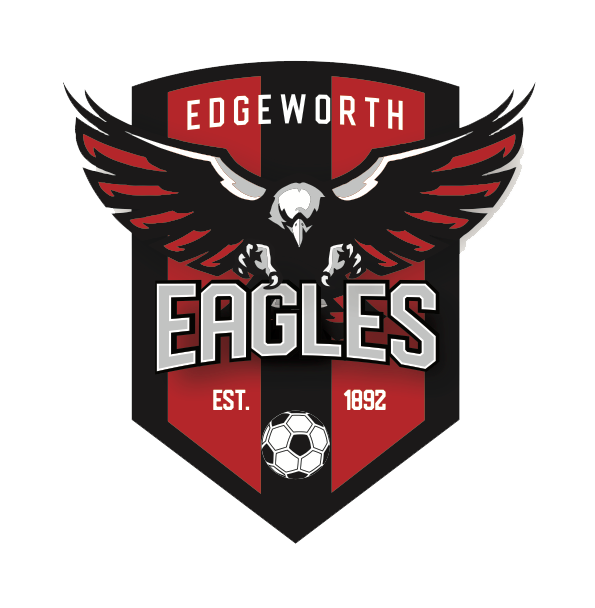
Edgeworth FC
59 %
pjennings
Well-Known Member
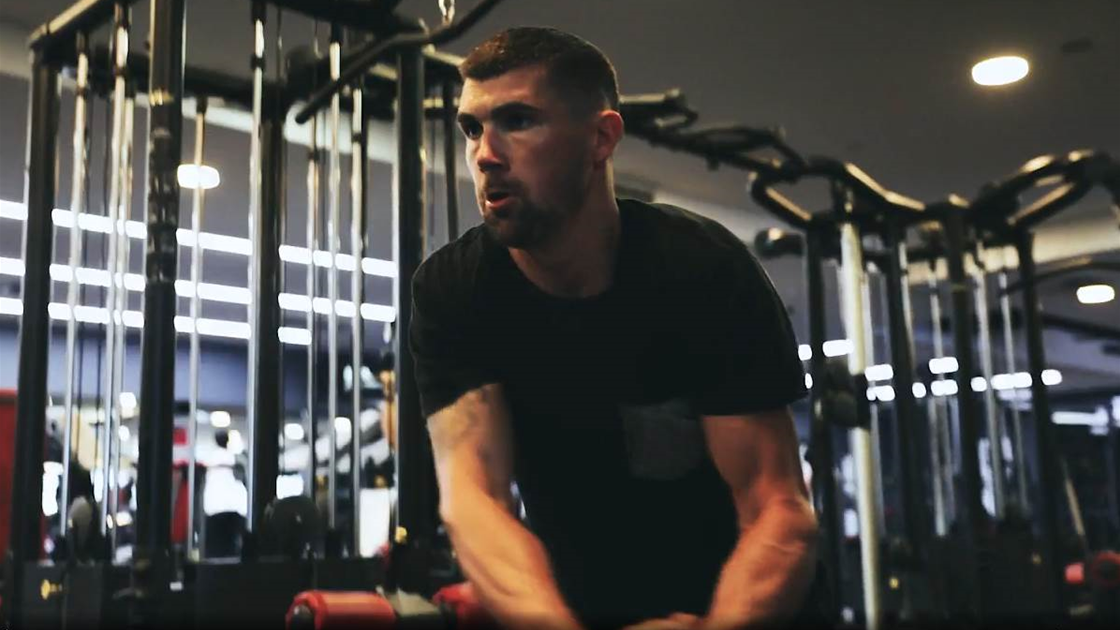
Ryan training with Bojic in Sydney in June.
EX-A-LEAGUE STAR GIVING BRIGHTON'S RYAN AN EDGE AHEAD OF EPL
By Aidan Ormond Jul 10 2019 9:26PM
English Premier League club Brighton and Hove Albion may one day want to thank A-League club Central Coast Mariners.
Not just because the NSW outfit gave a then 18-year-old Mat Ryan his chance to play regular first-team A-League football nine years ago.
One which years later helped the Seagulls remain in the English Premier League after two impressive seasons by their Aussie custodian.
But back at the Mariners, Ryan made a valuable contact during their A-League golden years from 2011-2013.
That contact? Former Northampton Town defender Pedj Bojic.
The powerful Aussie defender would fit in personal training with clients in Sydney before driving up the coast for first-team sessions with Ryan and the Mariners.
He would then return to the Harbour City later in the day to complete even more sessions with fitness-obsessed corporate clients.
Super-fit Bojic, who played five years at the Gosford-based club, was always going to be a strength and fitness coach after his playing career ended.
So while they played at the Mariners, Bojic, now 35, found a kindred spirit in Ryan who is known for his meticulous approach to strength and conditioning.
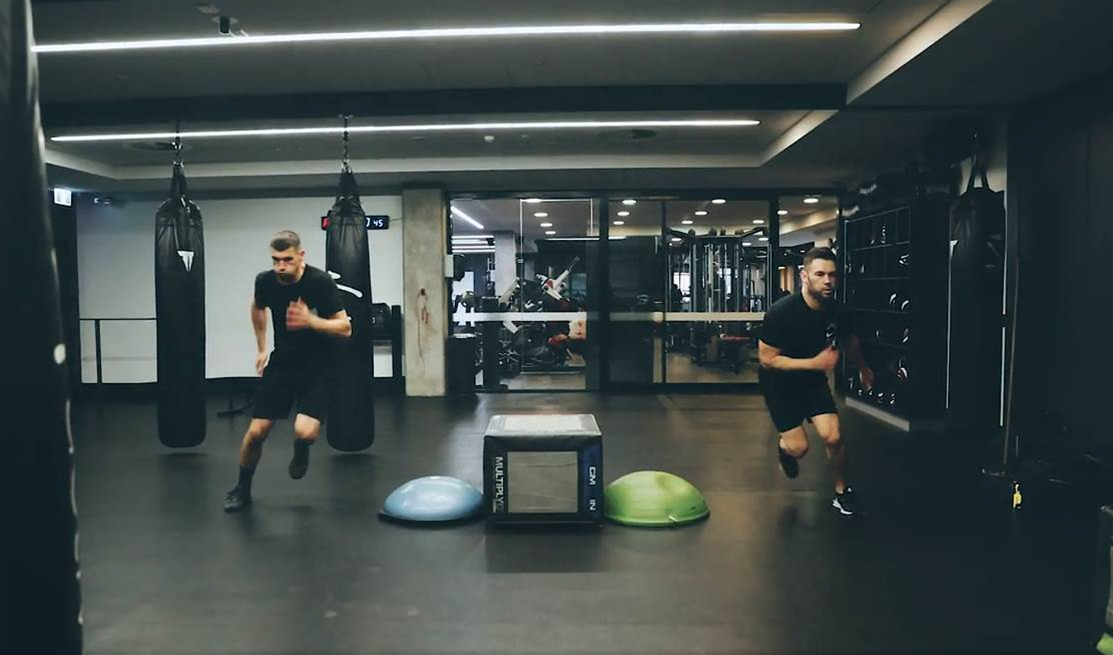
Bojic (right) with Ryan in Sydney lat month
Bojic worked with Ryan during his successful spells with Club Brugge, in Spain with Valencia and now with EPL outfit Brighton.
In fact, while Ryan was on his post-season break in Sydney last month, the Socceroo would get up before sunlight to meet with Bojic for a series of bespoke strength and conditioning sessions to help the keeper find an edge ahead of the new EPL season.
“It’s a joy to work with Maty. He always wants to improve and he won’t settle for eight out of 10, he wants 10 out of 10," Bojic told FTBL today.
“He will keep pushing to learn and improve. When he was in Sydney he was the one driving it, asking when can we train.
“Maty is a true professional. And I’m simply there to guide and find out how he can improve.
“That shows you the mindset of a true professional."
The pair go back but push each other.
“I think I proved myself to be one of the fittest in the A-League at the time.
"I still can’t dribble," Bojic added with a smile, "but I can run!”
It’s obviously helping Ryan, whose career has continued to go from strength to strength.
“We just bonded at the Mariners and Maty always wanted to learn and ask questions about diet, mindset, and training.
“We’d set out programs understanding his strengths and weaknesses, all the way through his Belgian career and in Valencia and Brighton."
With the help of Ryan, Bojic simply identifies where the keeper needs to improve. Learning certain functionality concepts in football to improve his game.
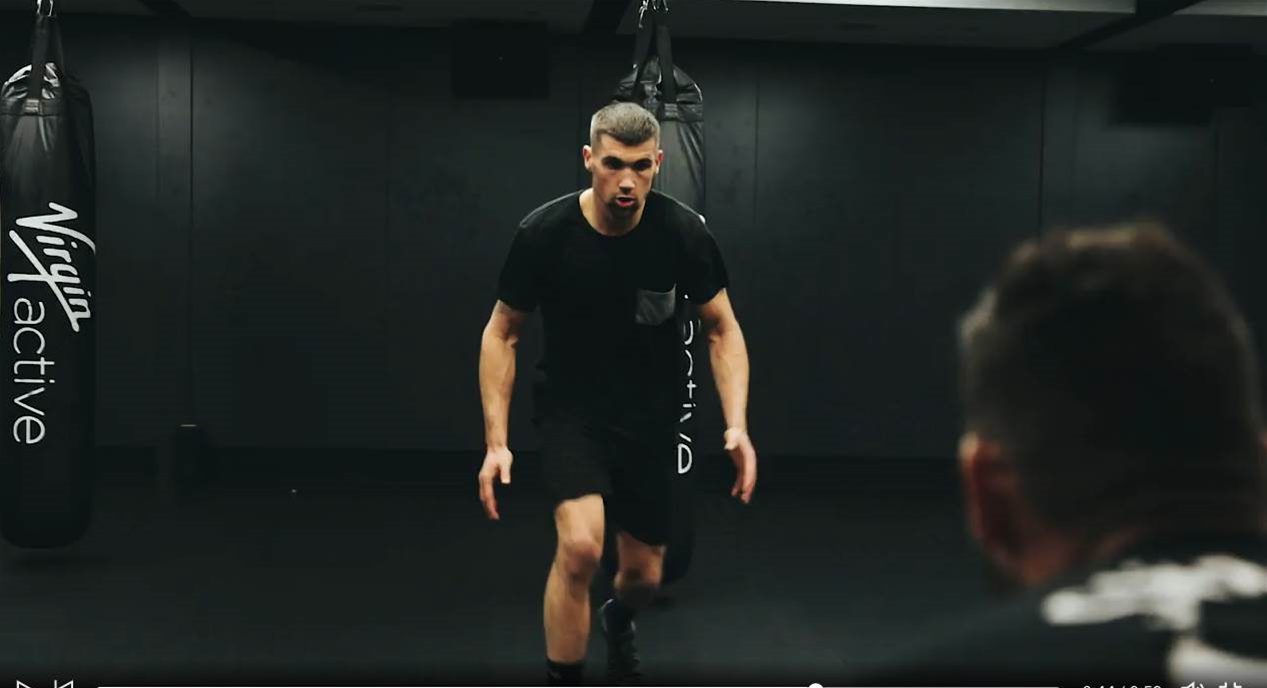
“It may be a certain part of your body that needs strengthening or improving. Or criteria around what a player needs.
“It could just weaknesses in push-offs on the left or right foot, or if there are weaknesses between ankles hips and knees in a forward motion versus a lateral movement.
“It’s breaking down the player’s technique on the field to make it better. Stronger faster and being more functional to your actual position on the field," explained Bojic.
Bojic, a former Sydney FC defender, says his mantra is about helping more than just an EPL star and former teammate.
He wants to help Australia’s youth, to give them the opportunity to train like a pro athlete. But it's not that simple.
“Mindset is another key area. Fear of failure, for instance, with a lot of people fearing what people will think. That’s what scares them off.
"We create an illusion before something has even happened.
“When you maintain a certain level, you’re not going forward," he explained further. "You’re actually going backward. So you always want to raise your game."
Want professional training by Pedj? Find him on Facebook.
https://www.ftbl.com.au/news/ex-a-l...ghtons-ryan-an-edge-ahead-of-epl-528020/page0
pjennings
Well-Known Member
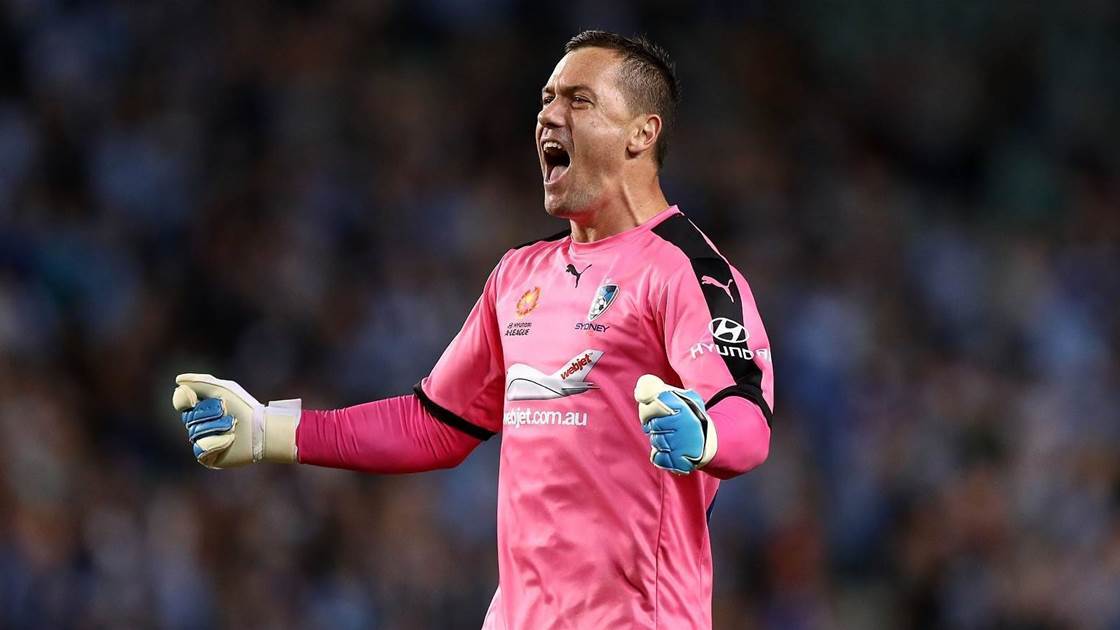
VUKA WINS MORE SILVERWARE
By Nicholas Rupolo Jul 21 2019 10:42AM
Socceroos goalkeeper Danny Vukovic has started the season with another piece of silverware after winning the Belgian Super Cup with KRC Genk.
The final was played between KRC Genk, winners of the Belgian Pro League and the victors of the Belgian Cup, KV Mechelen.
Vukovic played a full match and kept a clean sheet in a 3-0 win over the newly promoted side KV Mechelen.
Vukovic, who has three caps for the Socceroos, just returned to start the new season with Genk after a jam-packed previous campaign.
The 34-year old was between the sticks for 51 first team matches including eight Europa League games last season, a personal record for the evergreen keeper.
Vukovic will be taking it up a step this season after his side qualified for the UEFA Champions League group stages.
https://www.ftbl.com.au/news/vuka-w...dium=social&utm_campaign=insidesport_autopost
Insertnamehere
Well-Known Member
Possobly a ruptured Achilles. Id rather do an ACL. If so hes gone for the whole season.Danny wins silverware the gets a serious injury
Insertnamehere
Well-Known Member
Partial yes. Complete, season. ACL shouldn't be more than 9 months nowadays, commonly hear of 6.No way.
ACL can be more than a season.
Achilles can respond to massage and acupuncture and be as as little as 6-8 weeks
Difference is complete tissue replacement vs relying on healing. Id prefer the surgical options for ACL.
Also at 34 any injury like that is fkd but calf related ones linger because of the changes to muscular tissue makeup.
sydmariner
Well-Known Member
A hat-trick from Central Coast Mariners starlet Dylan Ruiz-Diaz has helped Australia beat Singapore 5-0 and secure a semi-final berth at the 2019 AFF U-18 Championship.
18-year-old attacker Ruiz-Diaz scored twice in the space of four first half minutes following an opening strike from Western Sydney Wanderers midfielder Fabian Monge.
Gary van Egmond’s side continued their dominance after the interval with a stunning long-range effort from Thomas Fay of Sydney FC, before Ruiz-Diaz sealed his treble in the 78th minute.
Feature image courtesy of Central Coast Mariners on Twitter @ccmariners
Thursday's result means the Young Socceroos edge out Malaysia at the top of Group B with four wins and one defeat from five matches.
Australia will now entertain Myanmar, who finished runners up in Group A to Indonesia, in a semi-final on Saturday in Binh Duong. Kick off in that one is 9.30pm AEST.
SIGN UP: Join the Football Family today
WHO'S MOVED WHERE: Caltex Socceroos on the move in the transfer window

DETAILS: Australia U-23 to play New Zealand U-23 in two-match series
TICKETS: Secure your spot to see Australia’s finest young footballers in action

Time to go.
Well-Known Member
sydmariner
Well-Known Member
More of that against scum on wed pls
MagpieMariner
Well-Known Member
Coastalraider
Well-Known Member
FFC Mariner
Well-Known Member
They will be paying decent money and they do qualify for europe most years - back in the shop window maybe?
Time to go.
Well-Known Member
Time to go.
Well-Known Member
Time to go.
Well-Known Member
pjennings
Well-Known Member
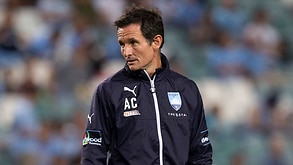
SBS The World Game host Lucy Zelic spoke with the FFA's High-Performance Coordinator Andrew Clark as part of her new series of long-form interviews with football personalities from Australia and abroad
Speak to any Australian footballer who has ever worked with strength and conditioning coach, Andrew Clark and they will all tell you the same thing - he is the absolute best in his field.
Back in 2015, Graham Arnold credited the sports scientist for bringing him “sanity, balance and clarity” and said he was “one of the best blokes I've ever met in my entire life.”
Repeat these sentiments to Clark and he’ll admit that it’s nice to hear these things but it’s not where his greatest satisfaction lies - it’s making players feel “bulletproof” that drives him.
A former player himself, the Gosford-born product has carved out a career as Arnie’s right-hand man in the Central Coast, Japan, Sydney and now the globe with the Socceroos.
Humble, easy-going and highly intelligent, I caught up with ‘Clarky’ to reflect on his ten-year “marriage” with Arnie and if they’ve had any bust-ups, why his exposure to ethnic influences in football were “wonderful” and if he’s ever been tempted elsewhere.
LZ: First and foremost, I want you to take me back to your playing career. You had stints in the National Soccer League, Hong Kong, Malaysia and with the Central Coast Mariners where you ultimately retired. What are some of your memories from those days?
AC: I think my love of football started long before those days and I guess we’re all touched by certain coaches as we’re developing that inspire you in the game and to develop a love of football.
I came from a sporting family that were swimmers, believe it or not. They really had no history or no interest in football at all but it was something that I loved from the start.
Being a bit of a late developer physically, I was always trying to catch up and I maximised everything I had which was physical quality. I was constantly trying to become a better footballer, right until the backend of my career at the Mariners - if you want to call it a career! [Laughs]
It was an amazing thing for me because I'd been away from home for nearly ten years and then all of a sudden right at the end of my career, the A-League had finally formed with a team that was going to start in the place that I grew up.
I spent nine years there and had the opportunity to play and take on the strength and conditioning role. It was so nice to play in front of my family but it was also a soft landing in the business of sports science and strength and conditioning which I'd already been doing a lot of along the way.
My home club gave me the opportunity to develop and then grow out of that area into the next few steps which have led to where I am now.
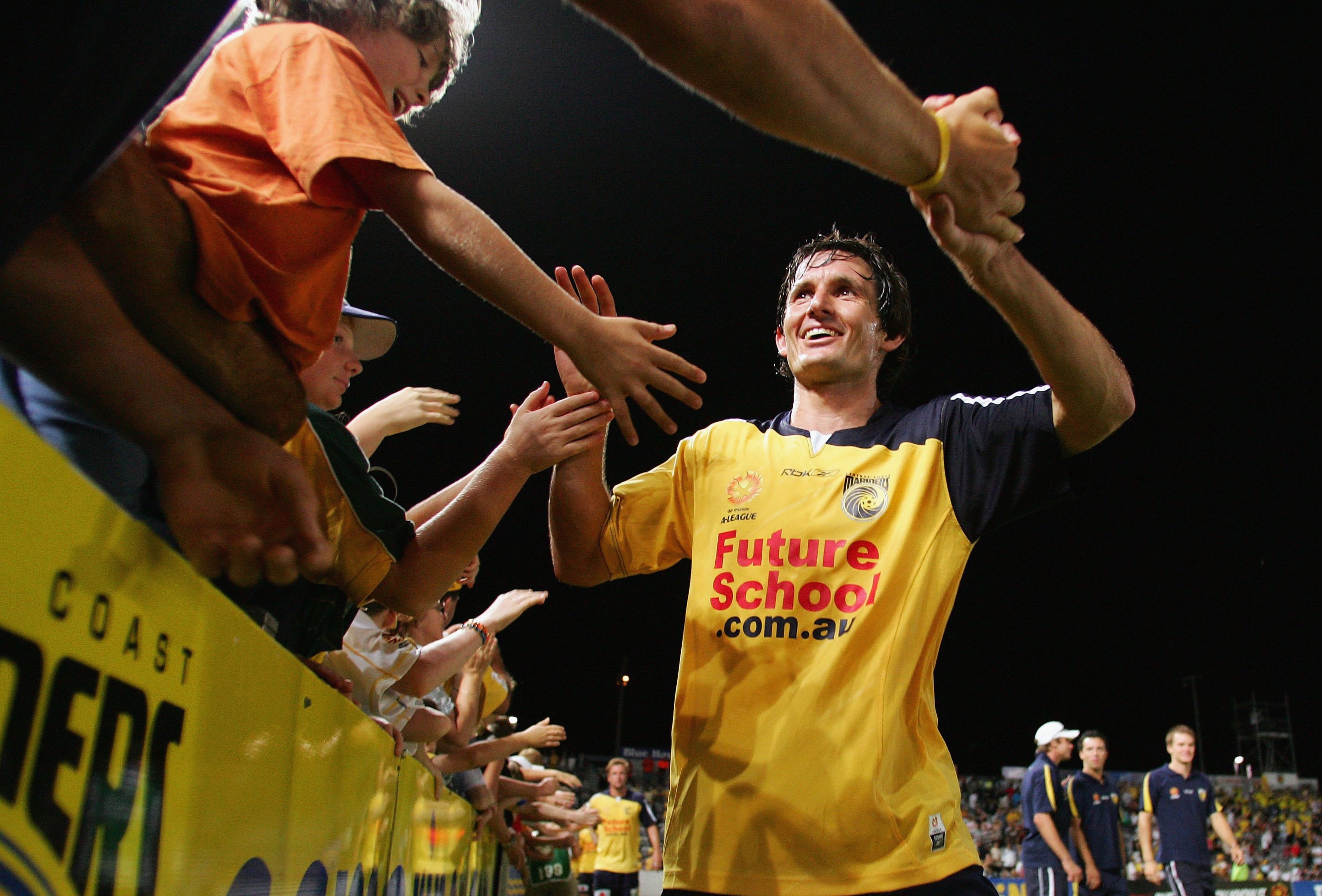
Andrew Clark celebrates with fans after the match between the Central Coast Mariners and the Melbourne Victory at Central Coast Stadium January 27, 2006.
You completed a Masters in Sports Science ten years ago now - what are some things you’ve learned about Australian football?
Tactically we're a lot smarter in the A-League now than we were back then.
I think Asia actually put us in a position where it's not good enough to just match a team physically - we need to smarten up and be able to compete, especially given the other factors that make the environment difficult like the salary cap and the travel demands.
I'm heavily involved with all of the national teams - from the Under 16s trying to qualify for the next Under 17s with Trevor Morgan to the Under 17s going to the World Cup, to the Matildas.
I think there are some really great technical players coming through at that younger age group and it's our responsibility to nurture that, identify the players that have the physical qualities to be top players and then provide them with a pathway to play at the top level in Europe.
That gap where players just stop playing games has hurt generations in Australian football.
Everybody in football knows that if you're not playing matches, your development stops no matter how much training you do so these kids need to play - they’re desperate to play games.
The fact that Trevor has got his team and they're about to compete in the World Cup is a great feat but kids measuring themselves up against the world has to happen in every age group. Then they need to be exposed to playing senior football as quickly as possible.
I want to pick up on the point about the technical ability of these young players coming through. There's this theory doing the rounds suggesting that we're producing athletes and not footballers nowadays. Does that resonate with you?
I don't really think about it too much, to be honest. I came through a period when I was young where I was first exposed to the influence of the ethnic groups in Australian football and it was a wonderful influence.
Most of the people that were coaching us really knew what professional football was about because they had either played in Europe and then come as migrants or they were first-generation and their parents were professional players.
Then there's a whole period where, as a nation, those people naturally got older and they became less influential in the game.
Now, you've got a whole generation of coaches trying to measure up to the things that those people taught players of that generation.
I think coaches in Australia are ambitious and we want to have Australian coaches coaching at the top level.
Below that top-level are ambitious young coaches and they're trying to upskill themselves through the people we have locally; through the internet, through watching everything that happens in the world and I'm no different to those people.
To become coaches that influence kids technically, to make sure that they're at a standard and they have the basic tools to be able to be professional footballers anywhere in the world - that's been a challenge for Australia.
From my experience, when you don't have those tools you will get to a point where you can't go any further. There are coaches out there that are doing a great job but the kids need to play and they need to play more as far as every day of the week.
Did you ever consider coaching?
I think I am a coach, to be honest. Without an understanding of how you want to play the game, I think it's very difficult to be very good at my job.
My job is looking at football from a different starting point but the end place needs to be how you want to play the game of football.
My, you could call it a marriage with Arnie, for ten years is about having some common ground on how we want the game to be played and that evolves.
The basic thing about the style of play is athletically demanding and that's where I fit in.
You’re looking at identifying, looking at helping to improve training, coaching players to be able to athletically carry out and sustain the style of play that we want to play.
But at the same time, having an understanding of how to keep those players healthy and how to expose their best qualities in a football context and I think that's the challenge in my job.
The responsibility I have in my role at the FFA is to try to help people in my part of the business be better coaches and have a better understanding of football and where they fit in.
It just so happens that for us at the moment it's tactical, it's athletic and it’s physically demanding so I’ve got a job to do.
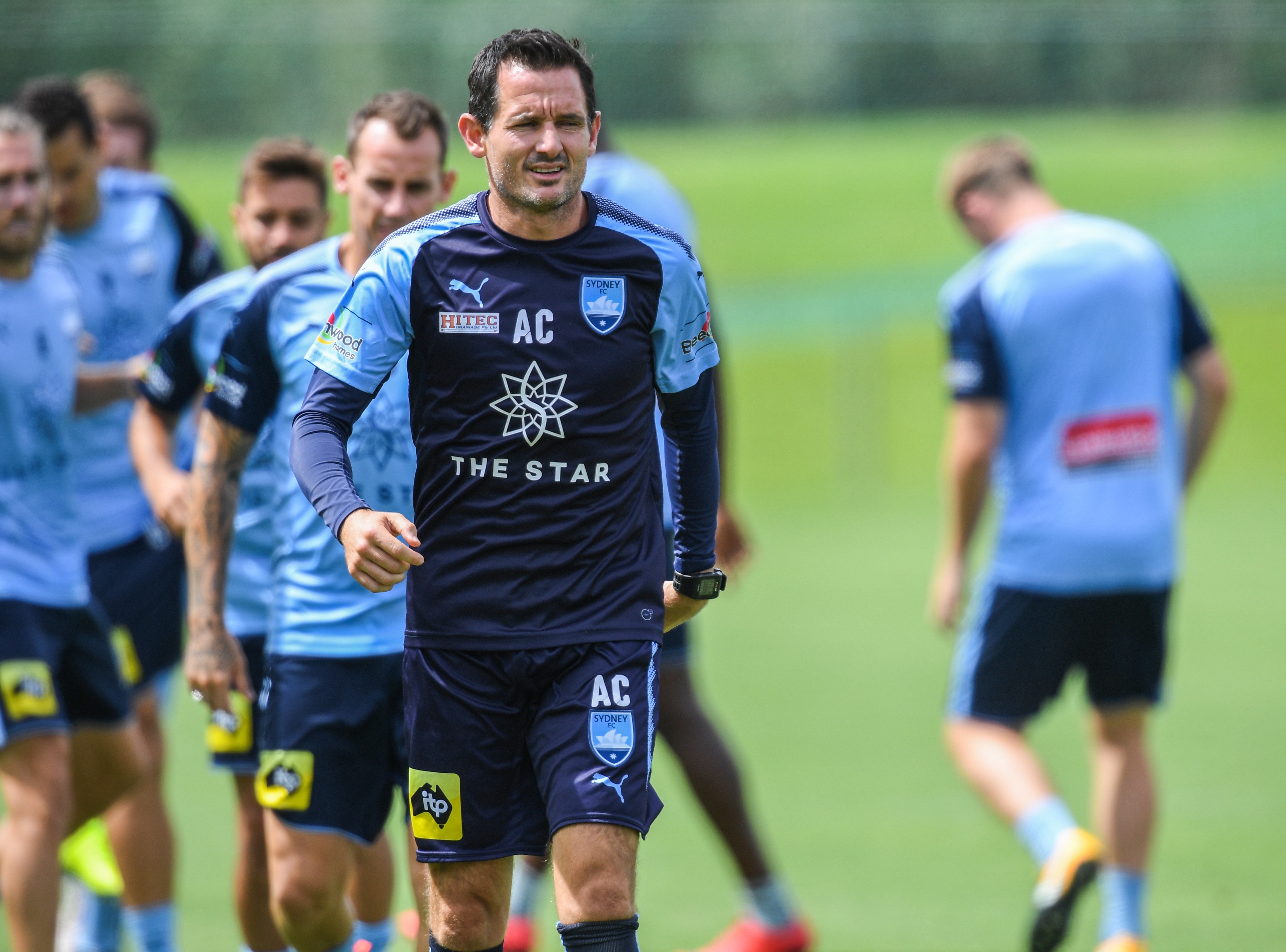
Head of High Performance Andrew Clark (centre) during Sydney FC training in Sydney, Thursday, December 28, 2017.
Back to your relationship with Arnie and the marriage as you referred to it. I want to know about those initial days when you first got to know one another and how the working relationship also came to light.
Lawrie [McKinna] was our coach back then and I spoke to him and said ‘look I'm finished now’ because it was actually the physical thing that stopped me.
I knew that I couldn't do the things which made me capable of playing the game and that was to outrun people. Physically I could just rob players until they either gave up or they got substituted and that was basically my game.
I had an existing contract that if I finished playing because I was already doing the strength and conditioning role in a part-time capacity, I could just continue on full time in that role and that was when Lawrie said ‘I am finishing as well.’
That’s when Arnie came in and we had kind of crossed paths but I didn’t have a previous relationship with him.
We sat down for a coffee one day before he went away for the World Cup and we had a chat and our beliefs pretty much aligned straight away.
At the start, I was doing a completely different role to what I do now. It went from a more pure sports science strength and conditioning role and then it evolved to taking bits and pieces of sessions and then working more in a football context.
We come from different starting places but the end position is exactly the same. We have to debate but in the end we have to agree and when we agree we get on with it, we get it done.
So now our families are close, we travelled away together and now we’re tripping around the world. It’s a good relationship and I'm very fortunate.
I only wish that someone like him came across my path at a really early stage in football because I see what he gives the players. They lean on him for life pretty much. When he’s touched a player, he's kind of a safe house for players.
I build similar sorts of relationships but he’s certainly a very good mentor to me and a good mate as well.
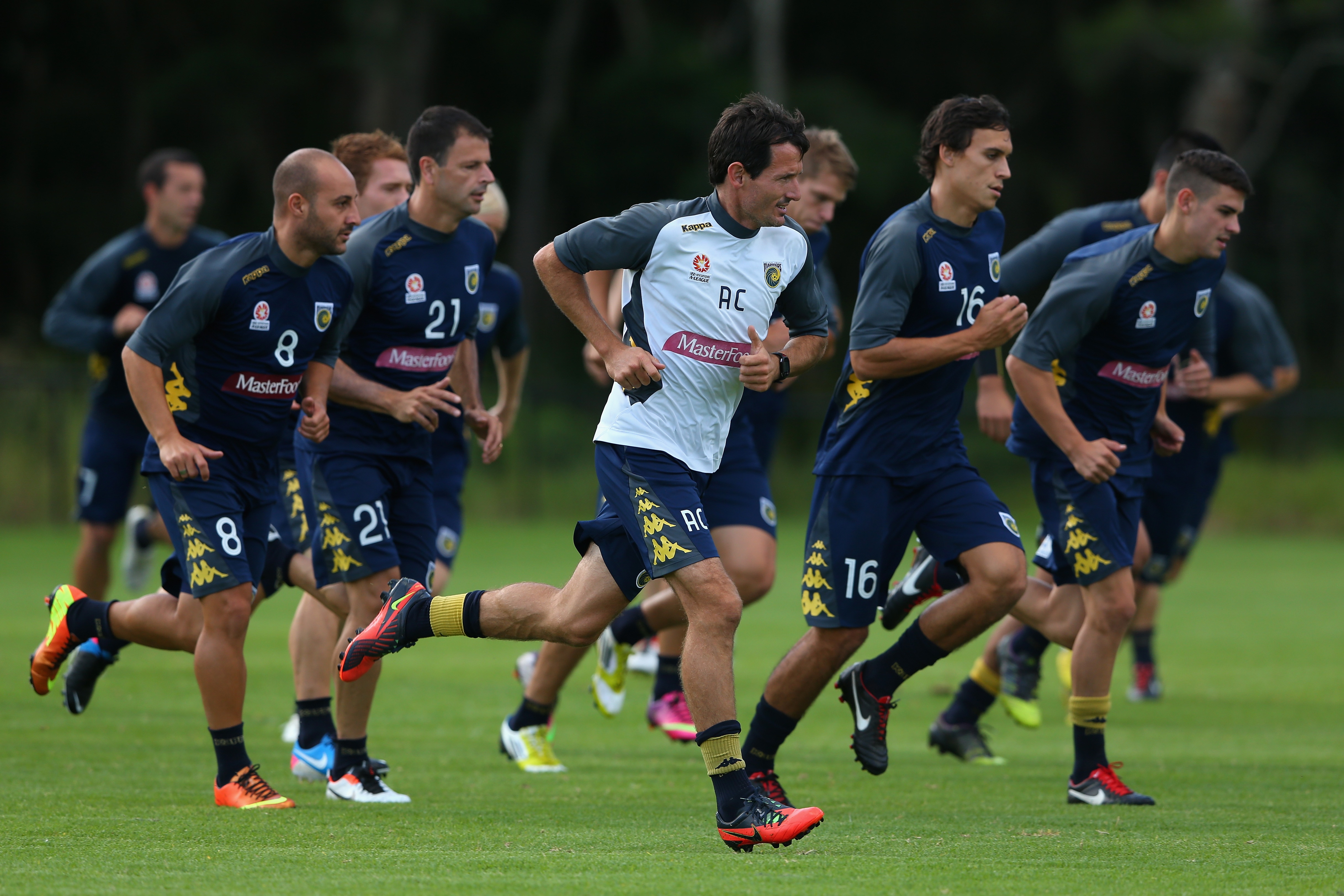
Do you ever have any bust-ups?
Of course we do! You can't work so closely with somebody without disagreement but that's a healthy thing.
Any relationship that never argues is probably not a healthy relationship in my eyes because that’s when you expose your difference of opinion and you work through it.
If it’s a real relationship then you'll find a solution and the common ground.
The [bust-ups] are never serious that they would ever jeopardize our friendship or our working relationship but of course, we disagree on things - that's part of every single decision.
Have you ever been enticed elsewhere?
Many times! [Laughs] We've always spoken openly that if an opportunity came that was too good to refuse, that we would never stand in each other's way.
Arnie’s like that with all of his staff and he doesn't hold anybody ransom and I feel exactly the same for him.
If a massive club came along and they said ‘listen, it’s you and that's it’ and he couldn’t pass it up, we have an understanding that our paths at some stage may diverge and then come back together.
That’s just the part of the business that we're in.
It must be challenging not having consistent contact with the playing group. What do you do in between camps?
The national teams have been the most challenging thing that I’ve done so far because building relationships long distance is very difficult and you have to think of new ways to do that.
Since we started in the job, if you're just talking on a domestic level, we've got great relationships with the A-League clubs and we all have our own interests.
I would be disappointed in a club that wasn't looking out for their players for their club. Things like trying to keep that player or making things difficult purely because they want to win. I would hope that they would be disappointed if I wasn't doing the same thing for the national team.
But I don't think we need to compete. We need to work together to make sure that the winner is the player because if they get stuck in the middle, it’s a terrible situation for the player.
They often do though when it comes to international windows, don’t they? There seems to be quite the uproar from coaches here in the A-League when players need to be released to play for their country. What are your thoughts on it?
We need both. Without the Socceroos, without the Matildas, how do we know how we measure up in the world? If we're not allowing players to measure up against international competition, then how do they know how good they are and what they need to improve?
The people that often have the arguments, and I'm no different, they have reaped all the benefits of playing for Australia; they’ve played for junior national teams, they’ve played at World Cups and in their heart they know that, that has made them who they are today.
We need to work together but we need to decide that these kids playing for their country is important and it's important for the game and it’s important for the player.
It's important in the end for the Socceroos and Matildas, which the greater sporting community support with all their heart.
It doesn't matter what sport you love or play in Australia, when it comes to the Socceroos and Matildas and they’re playing international football - the country supports them.
So those young players need to grow and develop in the club and in the national team environment in as harmonious a relationship as possible so that we have a Socceroos and Matildas team that we can be proud of.
https://theworldgame.sbs.com.au/lucy-zelic-in-conversation-with-andrew-clark
Online statistics
- Members online
- 10
- Guests online
- 392
- Total visitors
- 402

